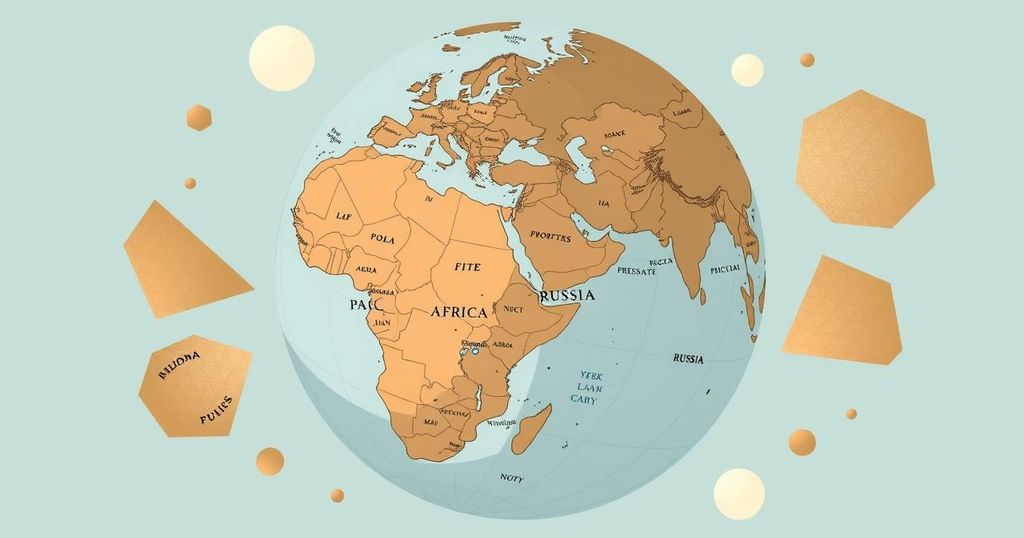Russia’s anti-colonial narrative significantly influences public opinion in South Africa, rooted in historical ties. The legacy of Soviet support during the Cold War contributes to sentiments favoring Russia, even amid contemporary conflicts. This ongoing relationship reflects the country’s complex geopolitical landscape, where historical connections and current diplomacy intertwine.
In South Africa, Russia’s narrative of being against colonialism influences public sentiment, rooted in a historical context dating back to the Cold War. An example is Sue Dobson, who, in 1986, was recruited by the African National Congress (ANC) to infiltrate the apartheid government, receiving training in Moscow. Her experience lends a unique perspective to South African views on Russia’s current geopolitical maneuvers.
Following her return from Moscow, Dobson worked as a reporter within the apartheid regime’s Bureau of Information. However, when authorities discovered her ANC connections, she was forced to escape to Botswana, aided by Soviet diplomats. Although she claims to lack the expertise to comment on Russia’s current actions in Ukraine, the historical ties between Russia and South Africa remain significant.
Amidst the West’s condemnation of Russia’s invasion of Ukraine in 2022, a notable divergence has emerged in Africa, where only half of the governments denounced Russia. Moscow’s position as a champion of anti-imperialist causes throughout history plays a crucial role in shaping this sentiment. Russia’s involvement in Africa is often perceived through the lens of its alliances during historical conflicts, such as its support for Ethiopia during the Italo-Ethiopian war.
Some scholars argue that Russia’s historical narrative is over-exaggerated. Oleksandr Polianichev, a Ukrainian historian, points out that while nominal assistance was provided, such as expired weapons, they failed to arrive in time for decisive battles. Furthermore, efforts to claim territory in Africa, such as Nikolai Ashinov’s brief attempt in Djibouti, ended unsuccessfully due to the French colonial presence.
During the Cold War, the Soviet Union supported various African nations in their resistance against Western-backed factions, strengthening ties with nations like Angola, Mozambique, and Egypt. According to Kimberly St Julian-Varnon, the USSR’s engagement was fueled by ideological motives, seeking to promote socialism.
The establishment of Patrice Lumumba University in Moscow, which provided scholarships for African students, showcased the Soviets’ commitment, although issues of discrimination detracted from this narrative. Reports of racism occasionally undermined Soviet claims to be a better alternative to Western colonial powers, yet many students still sought education there for the perceived opportunities.
The ANC’s historic relationship with the USSR and continued influence on South Africa’s ruling party translates into a sympathetic outlook towards Russia. Current ANC leaders, many of whom have ties to Russia, shape the government’s neutral stance on the Ukraine conflict, reflecting historical connections.
Support for Russia can also be seen at the grassroots level, where pro-Russian sentiments have emerged among certain sections of society. Moscow’s debt forgiveness and security aid in areas like the Central African Republic garner favor among local leaders, contributing to the appeal of Russia’s so-called ‘anti-colonial’ narrative. Polianichev elucidates that this narrative is accepted by various rulers as it aligns with their political agendas, demonstrating the complexities of international relations amid shifting allegiances.
In summary, Russia’s historical ties with South Africa and its anti-colonial narrative resonate with segments of the population, influencing public opinion amidst the current geopolitical climate. The legacies of Soviet support against colonialism, combined with modern diplomatic strategies, have fostered a favorable view of Russia among key leaders and constituents. As the global political landscape evolves, the complexities of these sentiments will continue to impact South Africa’s stance on international issues.
Original Source: www.aljazeera.com






